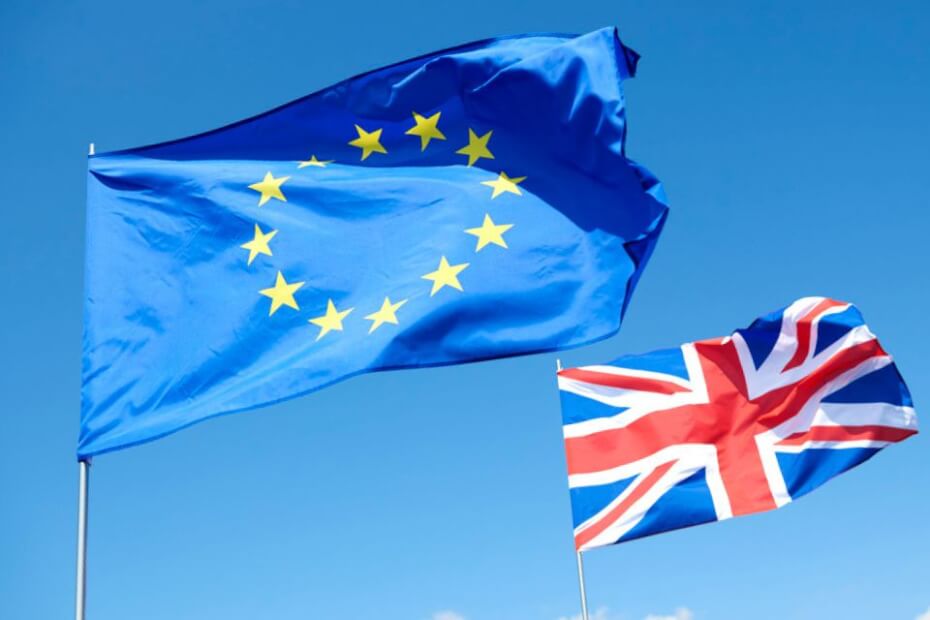
The European Union (EU) has sent the United Kingdom (UK) a reasoned opinion on the latter’s implementation of the Withdrawal Agreement.
The Withdrawal Agreement safeguards the rights of EU citizens living in the UK and UK nationals residing in EU countries when the UK left the EU in 2020.
This includes those who moved to the UK or an EU member state during the Brexit transition period at the end of 2020.
The agreement ensures these citizens and their families retain essentially the same rights they had before the UK left the EU.
This includes the right to live, study, work, and travel freely between the UK and EU.
The EU’s reasoned opinion addresses issues related to the rights of EU citizens living in the UK and the UK’s compliance with agreed terms.
The UK has two months to respond and take the necessary measures to address the EU’s concerns.
EU’s reasoned opinion on the UK’s implementation of the Withdrawal Agreement
The EU’s reasoned opinion is a formal request for the UK to address specific issues regarding the Withdrawal Agreement.
This mainly refers to the European Union Settlement Scheme (EUSS), the UK’s program that enforces the Withdrawal Agreement.
This scheme was established to protect the rights of EU citizens and their families residing in the UK post-Brexit.
Under the EUSS, European citizens and their families living in the UK for five years before Brexit are granted settled status.
Residents in the UK for under five years receive pre-settled status and can apply for settled status after five years.
However, the EU has raised concerns about the UK’s shortcomings in handling certain aspects of the agreement.
The concerns pertain to the right to move and reside freely, the movement of workers, and freedom of establishment, among others.
It focuses on the following key areas where it believes the UK is not fully complying with the Withdrawal Agreement:
EU Settlement Scheme
Many EU citizens have reported difficulties and delays in securing settled status, which ensures they have the right to live and work in the UK.
Residency Rights
The EU insists that individuals who have not yet applied for or received settled status should not face discrimination or unnecessary obstacles.
Free Movement
This refers to the travel disruptions and restrictions on the free movement of EU citizens within the UK and EU Member States.
EU demands the UK enforce all terms of the Withdrawal Agreement

The EU sent a formal notice to the UK about the same issues regarding compliance with the terms of the Withdrawal Agreement in 2020.
However, several points still need to be addressed, causing difficulties for EU citizens and their families who reside in the UK.
Now that the EU has sent a reasoned opinion, the UK has two months to address these issues and ensure full compliance with the Withdrawal Agreement.
Failure to do so could result in further legal action by the EU, including a referral to the European Court of Justice.
Calls to reform the EU Settlement Scheme
Several organizations advocating for EU citizens’ rights have called on the UK Government to reform the EU Settlement Scheme.
A total of 76 organizations signed a letter directed to the new UK Prime Minister, Sir Keir Starmer, to make the EUSS more efficient and accessible.
These groups argue that the current system is overly complex and unnecessarily burdens applicants.
The letter, published by The3Million, suggested that fixing the EUSS can help improve the relationship between the UK and the EU.
The3Million is a group representing the EU, the European Economic Area (EEA), and Swiss citizens residing in the UK, and campaigns for their rights.
Backlog of pending EUSS applications
The advocate groups call on the UK Government to clear the backlog of EUSS applications.
Recent data show that over six million applications have been submitted by EU citizens to the EU Settlement Scheme.
However, thousands of EUSS applications are still awaiting a decision.
This backlog has caused anxiety among EU citizens who are uncertain about their future in the UK.
Handling EUSS late applications
The groups also implore the UK to change how it handles late applications to the EU Settlement Scheme.
Those who qualify for settled status under the program should still be able to apply and regain their rights.
Their rights should not be denied solely due to a late application.
Issuing more than digital-only immigration status
Another recommendation that The3Million raised is giving EUSS-settled individuals more than digital-only status.
The group stressed that digital immigration status is inaccessible to many individuals who lack Internet access or are not tech-savvy.
It added, “Recent media reports have shown that the underlying Home Office data systems are seriously compromised.”
The system had shown broken records and errors, incorrect photos, and a mix of correct and inaccurate data.
Withdrawal Agreement and new border check systems

The group raised the same concerns during a UK Parliament Committee inquiry into the new border check systems.
Monique Hawkins of The3Million urged the government to delay the widespread Electronic Travel Authorization (ETA) launch.
She recommended that it focus instead on transitioning physical immigration statuses to digital immigration records or eVisas.
The switch to eVisas aims to streamline the UK’s immigration process and improve its border security.
However, the transition’s ambitious timeline raises concerns about its potential impact on millions of foreigners living in the UK.
The more widespread rollout of the ETA may make travel of non-British citizens more difficult.
Only those with valid immigration status in the UK, including pre-settled and settled status under the EUSS, are exempt from the UK ETA scheme.
The EU’s Entry/Exit System (EES) and the European Travel Information and Authorization System (ETIAS) may also lead to more complications.
Those with valid residency in any EU Member State will be exempt from the EES.

